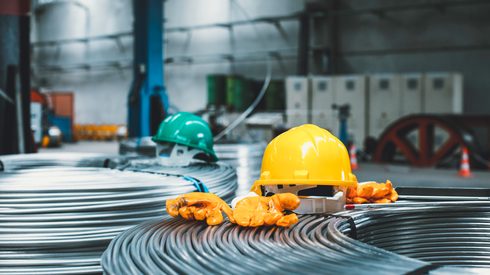The “Stop Mexico’s Steel Surge Act” introduced on Tuesday, March 12, would reinstate Section 232 tariffs on Mexican steel imports at 25%, for no less than a year, and give the president authority to implement additional quotas and tariff rate quotas on specific products if needed.
In 2019, the US agreed to exempt Mexico from the Section 232 tariffs which levies 25% duties on imported steel and 10% on imported aluminium. The two countries also agreed to monitor trade of the two metals.
However, in July 2023, US Trade Representative (USTR) Katherine Tai pointed out the surge in aluminium and steel exports from Mexico, especially via the transshipment of high-carbon material from third countries.
Strengthen your contract negotiations with our market-reflective steel price data. Create tailored steel price charts and view monthly averages, steel price assessments and steel price forecasts for hundreds of global steel prices. Find out more about our steel prices today.
The sharp increase in Mexican imports created “tension in steel trade”, Chris Weld, partner at Wiley Rein LLP, said in a panel at Fastmarkets’ Scrap & Steel North America 2024 conference in Houston, Texas in January.
The bill was introduced by Senators Sherrod Brown (Democrat, Ohio) and Tom Cotton (Republican, Arkansas), and House Representatives Frank Mrvan (Democrat, Indiana) and Rick Crawford (Republican, Arkansas).
“We applaud Senators Brown and Cotton, and Congressmen Mrvan and Crawford, and the numerous bill cosponsors, for introducing this important legislation. We continue to urge the establishment of an effective monitoring system to prevent new surges of steel into the United States from Mexico,” Kevin Dempsey, the president and chief executive officer of American Iron and Steel Institute (AISI), said.
The bill is a plea to the Biden Administration to keep Mexico accountable, Samir Kapadia, managing principal and head of trade at The Vogel Group, a bipartisan government affairs and consulting firm based in Washington DC, told Fastmarkets.
“There were implicit and explicit arrangements on keeping US and Mexican imports at historical averages. Both the republicans and democrats in Congress feel that the Biden Administration has not honored the section 232 arrangement that was brokered between the USMCA,” he said.
Kapadia added: “Mexican imports have surged tremendously, well over historical averages, prompting significant political backlash from Congress to address these matters.”
“The ongoing negotiations between the United States and Mexico have not as of yet resulted in Mexico agreeing to live up to the terms of the agreement it entered into with the United States in 2019 to gain an exemption from the Section 232 tariffs,” Dempsey said.
Domestic steel producers do not make enough material to supply domestic demand, developing the need for imports, according to Lewis Leibowitz, an international trade law attorney, told Fastmarkets.
“I think this bill is unlikely to pass – it provides negotiating leverage for the sponsors to urge executive action against Mexico for ‘allowing’ too much steel to go to the United States,” Leibowitz said.
We provide more than 250 steel prices, including industry benchmarks from across the globe. Fastmarkets’ steel price data combines the intelligence of industry-leading brands such as Metal Bulletin, American Metal Market, Scrap Price Bulletin and Industrial Minerals. Talk to us about our steel price data options today.





